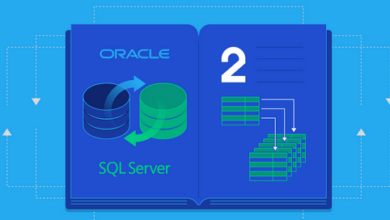THE DISADVANTAGES AND ADVANTAGES OF BEING A SOLE TRADER
There are many strong reasons why being a sole trader is a good choice and we will discuss these. However, let us begin by dealing with the downsides, and how to mitigate some of them, first.
Using this information, you can make a more informed decision about whether becoming a sole trader is right for you or not.
The disadvantages
- Unlimited liability: As a sole trader you have unlimited and full liability for all debts. In addition, when it comes to recovering debt from you, no distinction will be made between your business and personal assets.
By planning and managing your business well, having healthy cashflow and not incurring debts that you cannot service, you eliminate liability risk when it comes to normal operations.
However, there are situations that arise that could not have been foreseen or, in many cases, avoided. Loss of and damage to your business assets can be covered by various forms of commercial insurance. What can be a business-killer is if you face a liability claim from a third party for injury or loss suffered because of your business activities.
You should obtain crucial Public Liability insurance to cover costs incurred such as damages and legal costs. No business, especially sole trader ships, can afford to be without this insurance. Public Liability Australia compares insurance companies online with quick competitive online quotes.
- Difficult to raise capital: As a sole trader your sources of capital will be more limited than those of larger businesses. You will need to have funds to launch your business. These will either come from your savings or an interest-bearing loan.
Later in the life of the business, options available to raise funds are curtailed. For example, a sole trader may not have enough credit or a good enough credit record to secure a loan or additional/extended loan, and issuing stocks or shares is certainly not possible. This leaves bank loans as the only recourse.
- Full responsibility: As a sole trader you are 100% responsible for every decision, action, success and failure. There is nobody to share anything with.
For many, this is an extremely stressful situation. This is particularly true in relation to crucial decisions and during times that are financially difficult. Other individuals thrive under pressure.
- Taxes: You will be taxed as an individual and self-employment taxes are applicable to your income. Tax deductions that are available to larger businesses are not available to sole traders.
- Limited business life: When the sole trader dies or is unable to continue working, the business ceases to exist. In the event of death, any assets, money or debts and transferred into the sole trader’s estate where they are subject to inheritance tax.
For many individuals, this is not necessarily an issue or not one initially. However, if you want an enterprise that you can pass on or down, the sole trader would not be a good choice.
- Lifestyle restrictions: We all need some downtime to recharge our batteries. It is healthy for us and we even return to work with a fresh perspective. However, as the owner-manager-employee of your business, it can become difficult to take leave. If you stop working your business stops too.
Taking sick leave is also problematic, particularly if it is for an extended period. While there are forms of insurance that you would be wise to take out to cover injury and illness expenses and lost income, your business may lose customers or miss out on jobs and projects even after your return to work. Businesses need to maintain a presence to generate work.
- Bias: It may be unfair, but many customers perceive sole traders as less professional than larger concerns. While this may not be an issue at all if your customers are domestic or small businesses, it can make your chances of landing work with larger concerns less likely. This can be overcome to some degree through effective sales and marketing.
The advantages
The advantages of being a sole trader are numerous and attractive. Some of these pros also counterbalance a few of the disadvantages.
- Easy, quick start-up: Unlike with other structures or forms, it is simple and fast to establish a sole trader business. All you need is a name for your business, to fill in and submit a few forms, wait for the approval and you are ready to get going.
The start-up costs are also comparatively much lower, beginning with lower registration and other fees. As a one-person business, you will be able to limit and control costs and overheads. For example, you could work from home and avoid paying a deposit and rent.
- Full control: You are in complete control of everything in relation to your business. This means you can determine the focus, scope, and direction of your business. Not having to consult with others or obtain agreement or permission also allows you to act and react quickly which can be advantageous.
- Less admin intensive: As with any business, you must keep careful records of all orders, income, and expenditure and submit tax returns. However, as you will not have directors, shareholders, or staff the amount of time and energy you will spend on administration and paperwork will be far less than with other forms of business.
- Option to change structure later: If you later decide that you want to grow your business, diversify and employ staff, you can do so. You can then change the registration of your business by filling in the necessary forms and filing them. Equally, if you want to retire or change career direction, it is easy to wind up and close a sole trader business.
- Profits are yours: Just as you carry the full weight of responsibility and work, all the profits are yours too. Of course, the taxman wants his slice…
- Tax benefits: While we did look at disadvantages in relation to taxes, there is an upside too. As a sole trader you must only submit one return, yours as an individual. If you had a limited company, you would submit a return for the business and your own as an individual. In addition, there are certain business expenses you can claim for on your return.
- The personal touch: Offering a personal touch through a one-on-one relationship with your customers can build invaluable loyalty to you and your business. As a sole trader, you can get to know your customers and establish a rapport in a way that larger businesses rarely can or do.
Conclusion
If you have limited start-up capital, want a small business (at least to start), enjoy responsibility, flexibility, and being your own boss then becoming a sole trader may well be for you. Be aware of the potential cons and, where possible, take steps to protect yourself from risk and worst-case scenarios.




